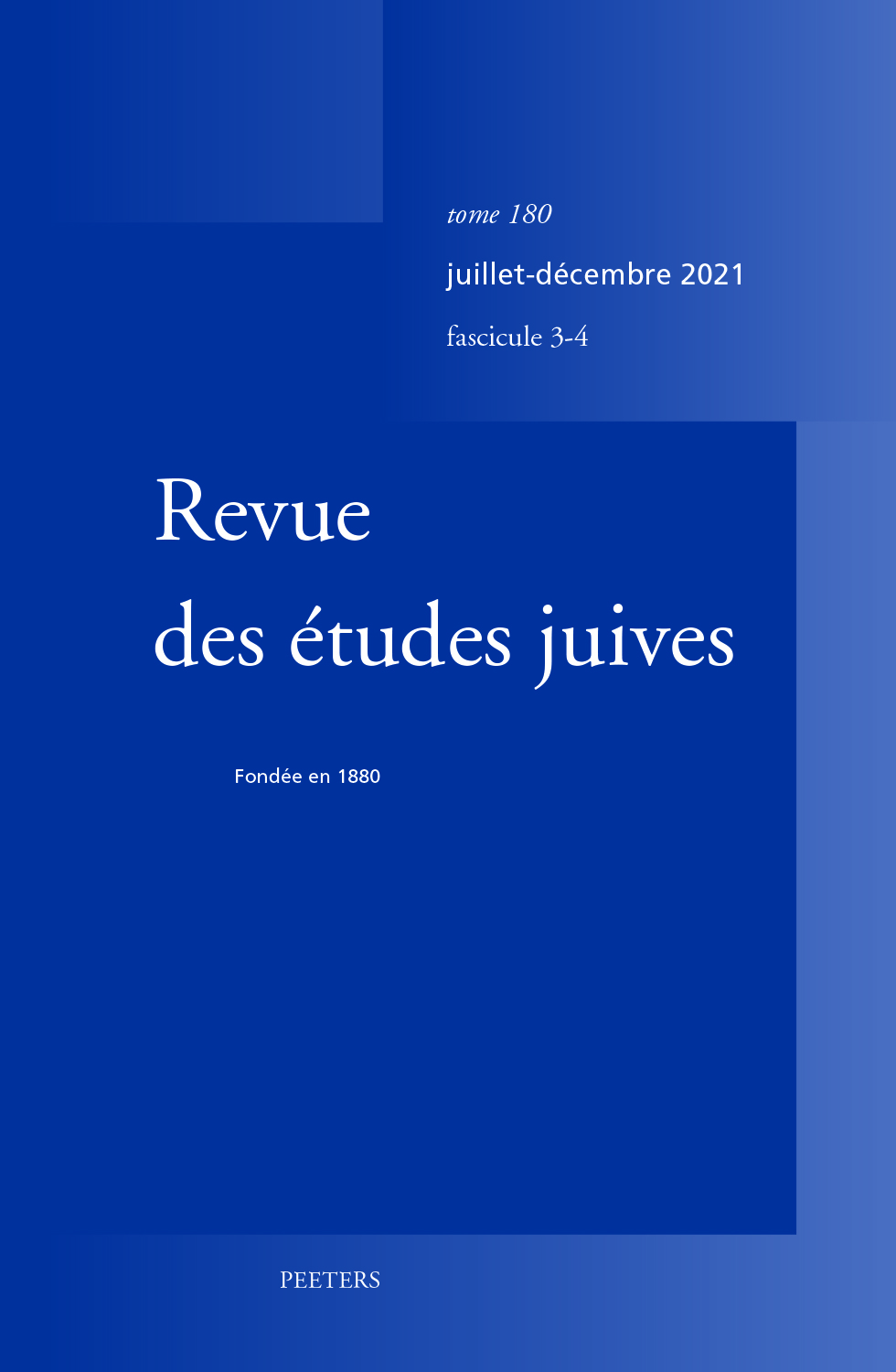next article in this issue  |

Preview first page |
Document Details : Title: Rome's Invention of Pauline Christianity and Its Responsibility for the Great Fire of Rome in 64 C.E. Author(s): LAUPOT, Eric Journal: Revue des Études Juives Volume: 164 Issue: 3-4 Date: juillet-décembre 2005 Pages: 415-448 DOI: 10.2143/REJ.164.3.2003828 Abstract : Basée sur le travail antérieur de l’auteur, la présente étude esquisse un tracé précis du caractère du mouvement des Christiani/Nazoréens de Tacite dans sa totalité. On peut déduire que le prosélytisme massif des Christiani/Nazoréens visant les Gentils de Rome a été la cause première qui poussa Néron à ordonner le Grand Incendie de Rome en 64 ou à le laisser s’étendre aux quartiers de la Ville éternelle les plus touchés par leur prosélytisme. Il est démontré comment les exécutions publiques en masse des «guerilleros» nazoréens après le Grand Incendie parodient deux traditions juives: 1) celle d’un lien commun entre les Juifs et les Grecs, remontant au minimum à l’Exode et 2) celle de l’idée qu’ont les Nazoréens d’être une lumière pour les Gentils (Is 43, 6; 49, 6). Tacite (Annales 15, 44) – Matthieu 7, 6, et l’exhortation de Jésus contre les Romains dans le TB Abodah Zarah 17a font l’objet d’une analyse approfondie. Pour finir, le nœud gordien qui lie les Christiani de Tacite au Nouveau Testament est définitivement tranché: les livres du Nouveau Testament se révèlent avoir probablement été des éléments de propagande romaine conçus pour saper la résistance des Christiani de Tacite. Continuing to build on the author’s previous work in this area, the overall character of Tacitus’ Christiani/Nazorean movement is fully delineated in the present study. Nazorean mass proselytizing of Gentiles in Rome is inferred to have been the pivotal event causing Nero either to have set the Great Fire of Rome in 64 C.E. or to have permitted it to burn in areas of Rome most affected by the Christiani’s proselytizing. Nero’s mass public executions of the Nazorean guerrillas after the Great Fire are shown to have parodied two Jewish traditions: (1) that of a common bond between the Jews and the Greeks dating back at least to the Exodus, and (2) the Nazoreans’ conception of being a light unto the Gentiles (Isa 42.6, 49.6). Tacitus’ Annals 15.44, Matthew 7.6, and Jesus’ exhortation against the Romans in b. Abod. Zar. 17a are all thoroughly analyzed. Finally, the Gordian knot tying Tacitus’ Christiani to the New Testament is cut once and for all: The books of the New Testament are shown to have been, more likely than not, Roman propaganda pieces designed to undermine the resistance movement of Tacitus’ Christiani. |
|


